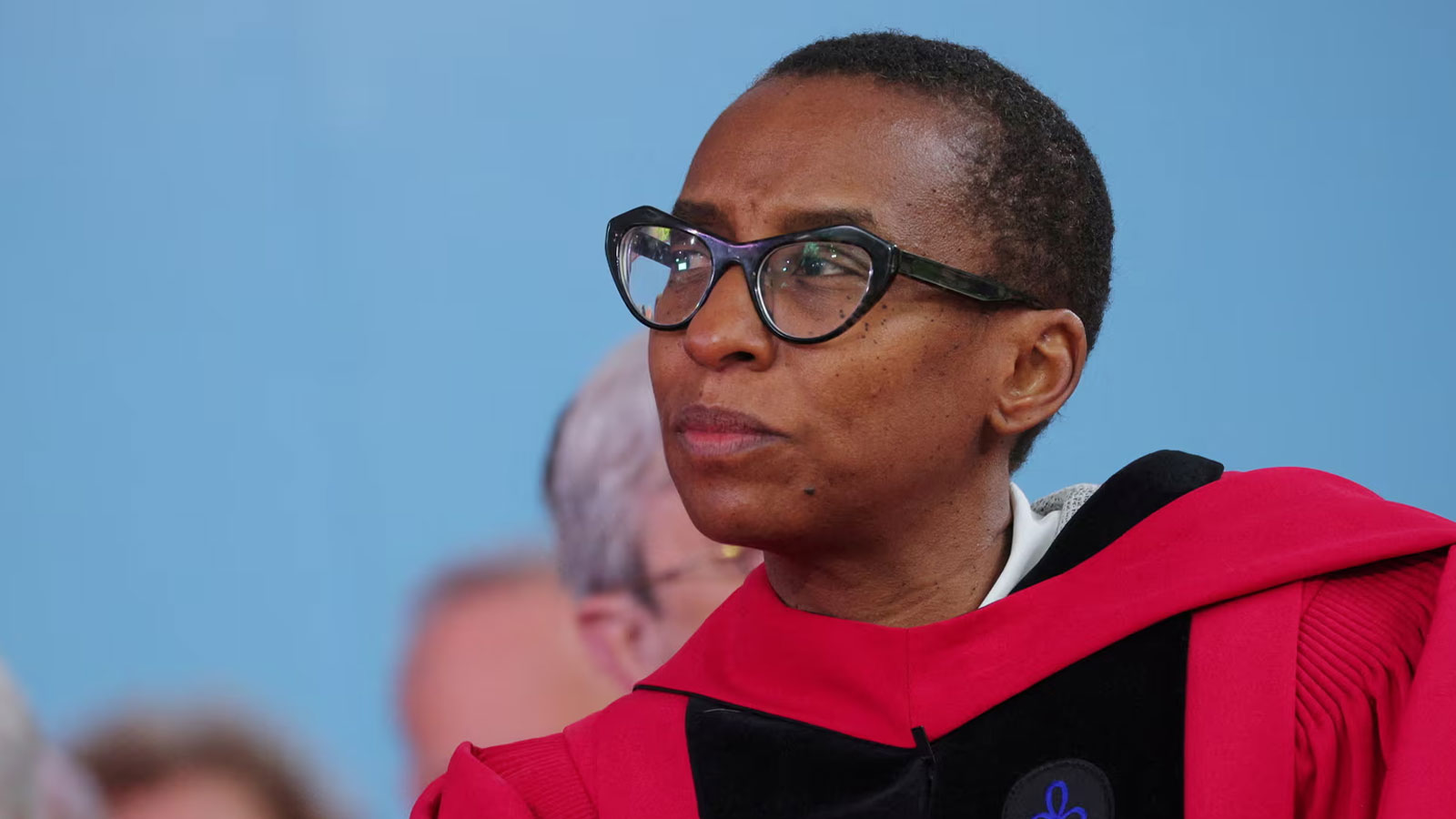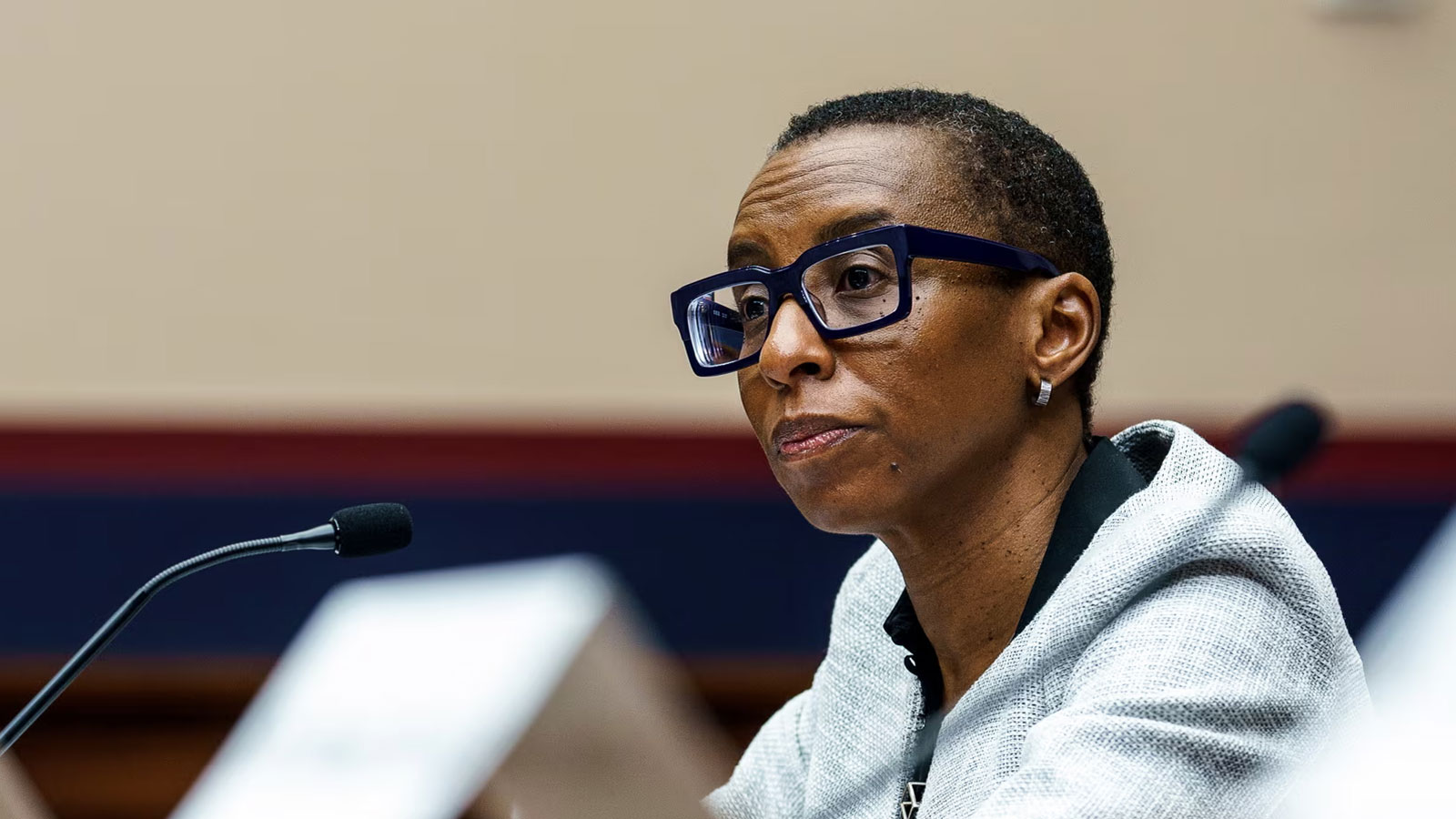Claudine Gay announces in letter she is stepping down after just six months and returning to position as member of the faculty.
By Adria R Walker, The Guardian —
Claudine Gay, the president of Harvard University, has resigned amid pressure over her response to questions about antisemitism at US colleges and allegations that she has plagiarized some of her academic work.
In her resignation letter, Gay announced that she will be returning to her position as a member of the faculty.
“As I now return to the faculty, and to the scholarship and teaching that are the lifeblood of what we do, I pledge to continue working alongside you to build the community we all deserve,” she wrote.
Gay’s resignation comes just six months after her presidency began, making hers the shortest tenure in Harvard’s history. The daughter of Haitian immigrants, Gay was appointed the first Black person and the second woman to the lead the Ivy League institution.
On 5 December, Gay, along with the presidents of MIT and the University of Pennsylvania testified before Congress about their campuses’ handling of accusations of antisemitism, following the beginning of the Israel-Gaza war. All three presidents offered legalistic answers. Following their testimonies, more than 70 US lawmakers signed a letter in response demanding the presidents be removed. The University of Pennsylvania’s president resigned on 9 December. Gay apologized later for her answers.
The campaign against Gay’s presidency was largely promoted by conservative activists, including those who oppose diversity, equity and inclusion initiatives. They argued that Gay was hired not because of her decades of academic work and recognition, but rather because she is Black. New plagiarism allegations surfaced on Monday in a conservative online journal that has led the campaign against Gay. Following the initial complaints, Gay defended her work. “I stand by the integrity of my scholarship,” she wrote. Gay later added additional quotes and citations to the articles.
Further commenting on the allegations, Gay wrote in her resignation letter, “it has been distressing to have doubt cast on my commitments to confronting hate and to upholding scholarly rigor – two bedrock values that are fundamental to who I am – and frightening to be subjected to personal attacks and threats fueled by racial animus”.
Despite the plagiarism accusations, Gay won a statement of confidence from Harvard Corporation, the school’s governing board. She maintained support from colleagues, including hundreds of professors signing a petition opposing calls for her to back down, and advocates who saw the attacks on her presidency as threatening free speech.
Gay’s resignation is effective 2 January. “When my brief presidency is remembered, I hope it will be seen as a moment of reawakening to the importance of striving to find our common humanity – and of not allowing rancor and vituperation to undermine the vital process of education,” she wrote in her letter. “I trust we will all find ways, in this time of intense challenge and controversy, to recommit ourselves to the excellence, the openness and the independence that are crucial to what our university stands for – and to our capacity to serve the world.”
Harvard president Claudine Gay’s resignation letter in full
Gay confirms she is stepping down following plagiarism accusations and backlash over Harvard’s response to antisemitism.

Claudine Gay at Harvard University’s 372nd commencement exercises in Cambridge, Massachusetts, in May 2023. (Brian Snyder, Reuters)
Dear Members of the Harvard Community,
It is with a heavy heart but a deep love for Harvard that I write to share that I will be stepping down as president. This is not a decision I came to easily.
Indeed, it has been difficult beyond words because I have looked forward to working with so many of you to advance the commitment to academic excellence that has propelled this great university across centuries. But, after consultation with members of the Corporation, it has become clear that it is in the best interests of Harvard for me to resign so that our community can navigate this moment of extraordinary challenge with a focus on the institution rather than any individual.
It is a singular honor to be a member of this university, which has been my home and my inspiration for most of my professional career. My deep sense of connection to Harvard and its people has made it all the more painful to witness the tensions and divisions that have riven our community in recent months, weakening the bonds of trust and reciprocity that should be our sources of strength and support in times of crisis. Amidst all of this, it has been distressing to have doubt cast on my commitments to confronting hate and to upholding scholarly rigor – two bedrock values that are fundamental to who I am—and frightening to be subjected to personal attacks and threats fueled by racial animus.
I believe in the people of Harvard because I see in you the possibility and the promise of a better future. These last weeks have helped make clear the work we need to do to build that future – to combat bias and hate in all its forms, to create a learning environment in which we respect each other’s dignity and treat one another with compassion, and to affirm our enduring commitment to open inquiry and free expression in the pursuit of truth. I believe we have within us all that we need to heal from this period of tension and division and to emerge stronger. I had hoped with all my heart to lead us on that journey, in partnership with all of you. As I now return to the faculty, and to the scholarship and teaching that are the lifeblood of what we do, I pledge to continue working alongside you to build the community we all deserve.
When I became president, I considered myself particularly blessed by the opportunity to serve people from around the world who saw in my presidency a vision of Harvard that affirmed their sense of belonging – their sense that Harvard welcomes people of talent and promise, from every background imaginable, to learn from and grow with one another. To all of you, please know that those doors remain open, and Harvard will be stronger and better because they do.
As we welcome a new year and a new semester, I hope we can all look forward to brighter days. Sad as I am to be sending this message, my hopes for Harvard remain undimmed. When my brief presidency is remembered, I hope it will be seen as a moment of reawakening to the importance of striving to find our common humanity – and of not allowing rancor and vituperation to undermine the vital process of education. I trust we will all find ways, in this time of intense challenge and controversy, to recommit ourselves to the excellence, the openness, and the independence that are crucial to what our university stands for – and to our capacity to serve the world.
Sincerely,
Claudine Gay
Source: The Guardian
Featured image: Claudine Gay on Capitol Hill in Washington DC on 5 December. Photograph: Will Oliver/EPA-EFE















